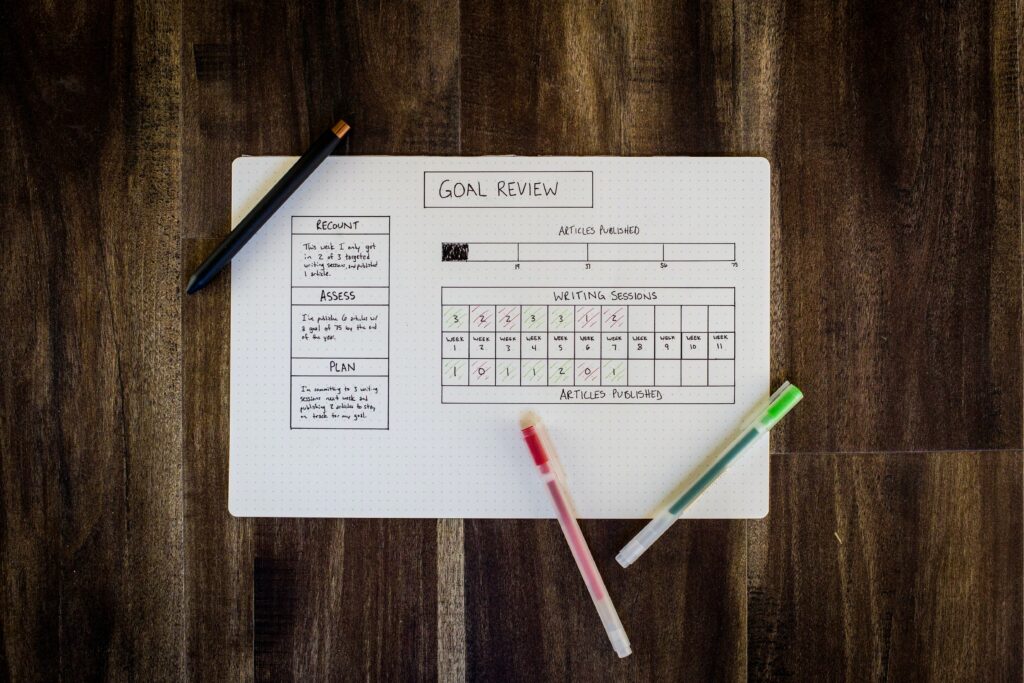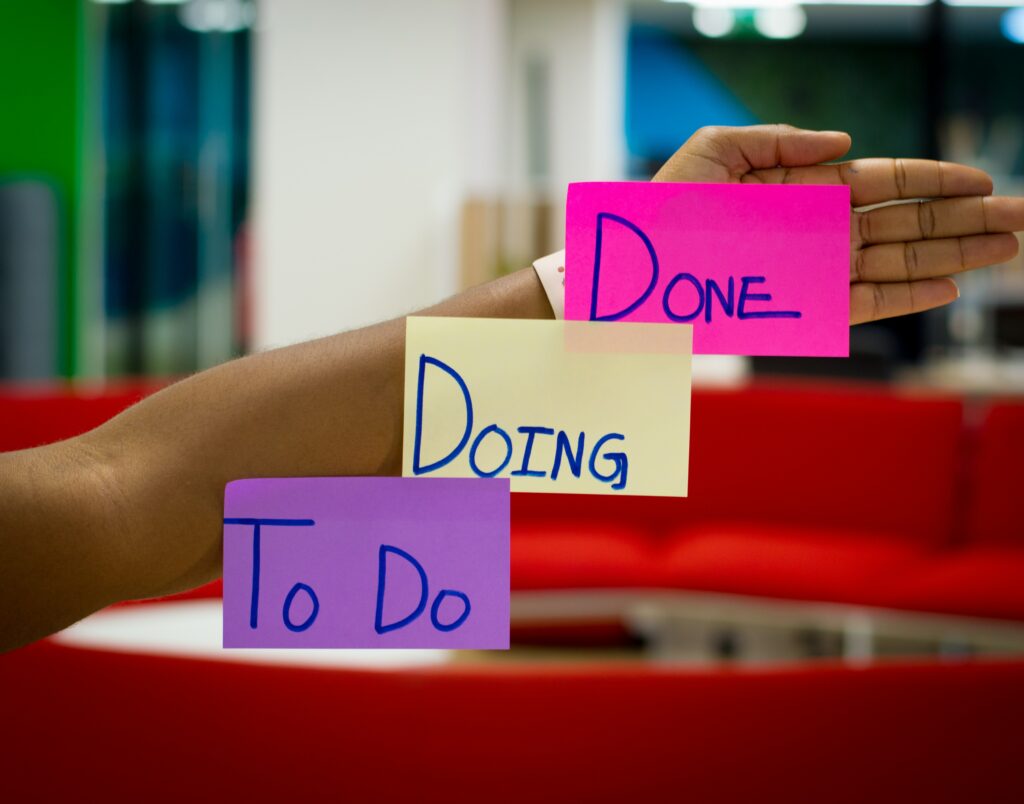Are you a student trying to juggle a seemingly endless list of assignments, exams, and as a result feeling more stressed than ever? You’re not alone!
Managing time and reducing stress is a universal challenge that students face every day. The good news is that there are practical strategies that can help you effectively navigate this busy period of your life.
As a student myself I know how stressful university can be so, here are some practical tips and strategies you can do to ensure you manage your time and as a result minimise stress in the process.
1. Set Clear Goals
Setting clear goals at the beginning of the academic year will set a good pace for the rest of the year. I have recently started doing this and it makes a whole lot of a difference. Some questions to ask yourself when writing your goals are: What do you want to achieve academically and personally? What do I want to achieve by the end of the year? Having well-defined goals will guide your actions and help you prioritize your tasks.

2. Create a Schedule
Time management starts with creating a schedule. I quickly found out that university is not like secondary school where there is structure and teachers tell you what to do. Therefore, you can fall behind on coursework very easily. One thing I did was use a planner and a digital calendar to lay out your daily, weekly, and monthly commitments. When creating your calendar be sure to include your classes, study sessions, work, and personal time.

3. Prioritise Tasks
Being able to prioritise tasks links very closely with tip number 6 of learning to say no. You always have o remember that fun will forever be there but no one is doing the task for you. Not all tasks are created equal meaning some may be more important than others or have closer deadlines.
You should identify the most important and urgent ones, and tackle them first. I try and avoid getting side-tracked by less serious activities that might only contribute to your stress levels such as meeting friends or watching Netflix.

4. Break Tasks into Smaller Steps
At University, large assignments or projects can be intimidating. So, it’s important to make them more manageable. What I have found useful in my 2 years of university is breaking tasks down into smaller, more achievable steps.
This has been one of the greatest decisions I did because looking at a task as a whole can seem way too much to handle. However, ensuring you do this method you will also give yourself a sense of accomplishment as you complete each task.

5. Avoid Procrastination
Procrastination can be a significant source of stress. Everyone procrastinates but it is not a good habit to have. I have overcome procrastination by practicing self-discipline. If you’re struggling to start a task, commit to working on it for just a few minutes. Often, this initial push is enough to get you going. Once you get getting you will be on a roll and most likely end up finishing the task required.

6. Learn to Say No
Overcommitting can lead to stress and a lack of time for essential tasks. If you are not able to prioritise important tasks such as assignments or revising for an exam you have to learn to say no to less necessary tasks such as going out with your friends or scrolling through TikTok. I have definitely more recently learned how to say no and miss a couple of events to ensure my work gets done. You can’t do everything, and that’s okay.

7. Stay Organised
I am really good at staying organised but I was not always like this. A cluttered workspace and disorganised materials can hinder your productivity and increase stress. If you don’t have an organised work space you will find it very hard to find resources that you need.
The workload at university drastically increases from being in sixth form. Furthermore, that is why I have folders for my modules to ensure I don’t lose any import information. I have also created a system for organising your notes, textbooks, and supplies.

8. Take Breaks
As a university student everything is super-fast paced therefore you need to take a break and re-evaluate things. Taking regular breaks is crucial for maintaining focus and productivity. It is easy to get very tired at university as there are a lot of late-night parties. Therefore, when completing coursework ensure that you sue techniques like working for 25 minutes and then taking a 5-minute break. It’s a great way to stay fresh and engaged.

9. Self-Care
Never underestimate the importance of self-care. I always make sure that I do things that help me relax such as skincare or putting on a movie to watch. What we can all do as university students is prioritise our physical and mental health.
At university no one ever sleeps early but it will do you good if you can enough sleep. Another thing that I do is try and eat a balanced diet instead of ordering in all the time as well as making sure you exercise regularly. At university I joined a gym which helped me keep moving and stay fit.

Photo by Brandy Kennedy on Unsplash
10. Seek Support
Don’t hesitate to seek support when you’re feeling overwhelmed. Being at university can feel very lonely and isolated at times so it’s important to know where to go if you are ever struggling. Most universities have counsellors you can speak to if you are feeling stressed.
However, if you don’t want to talk to a counsellor you can talk to your tutor. They will most likely be very understanding if your workload it too much. I personally talk to my friends if I am ever feeling stressed because they may be able to help me break down my workload.

Have you also read these articles?

